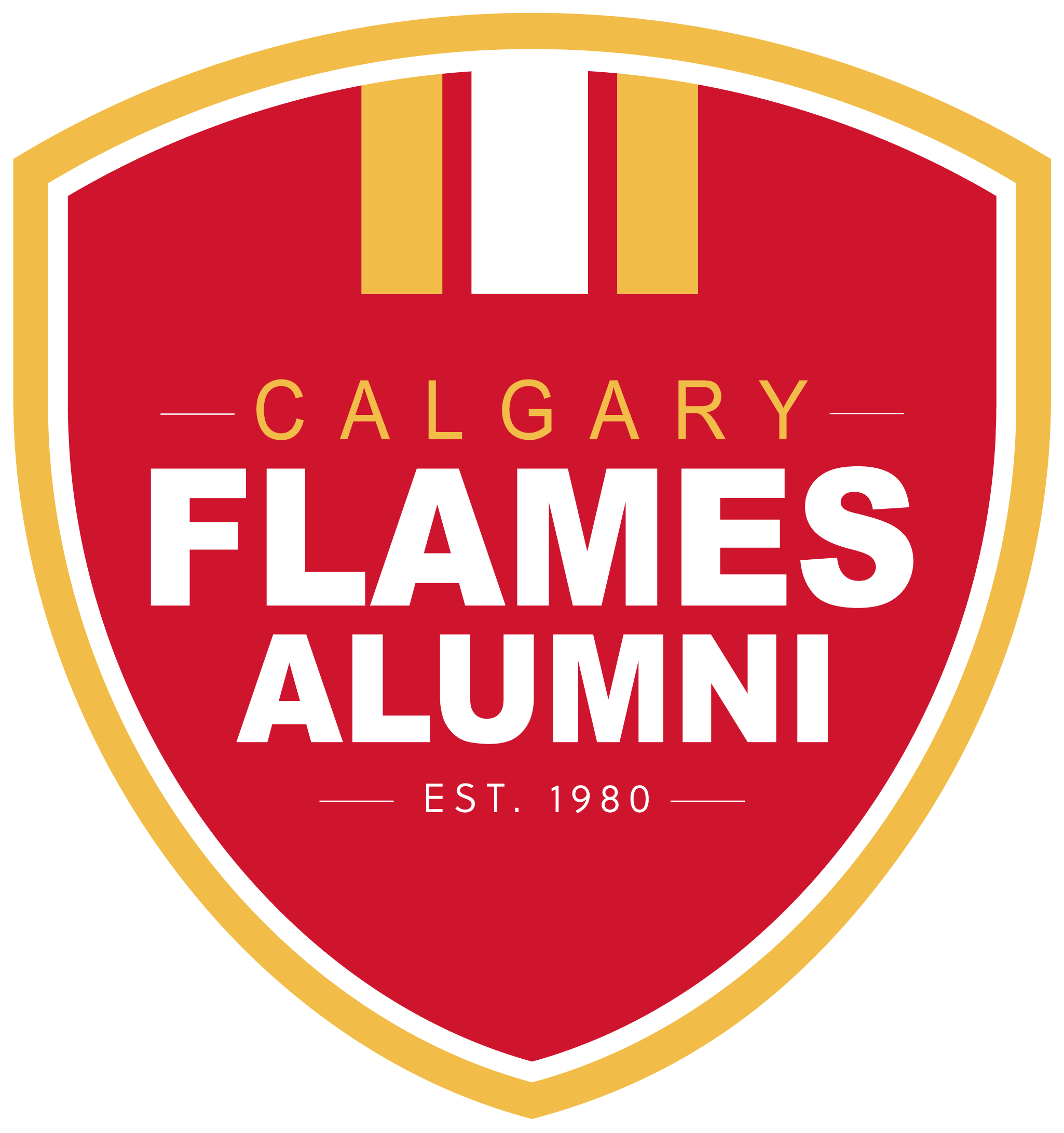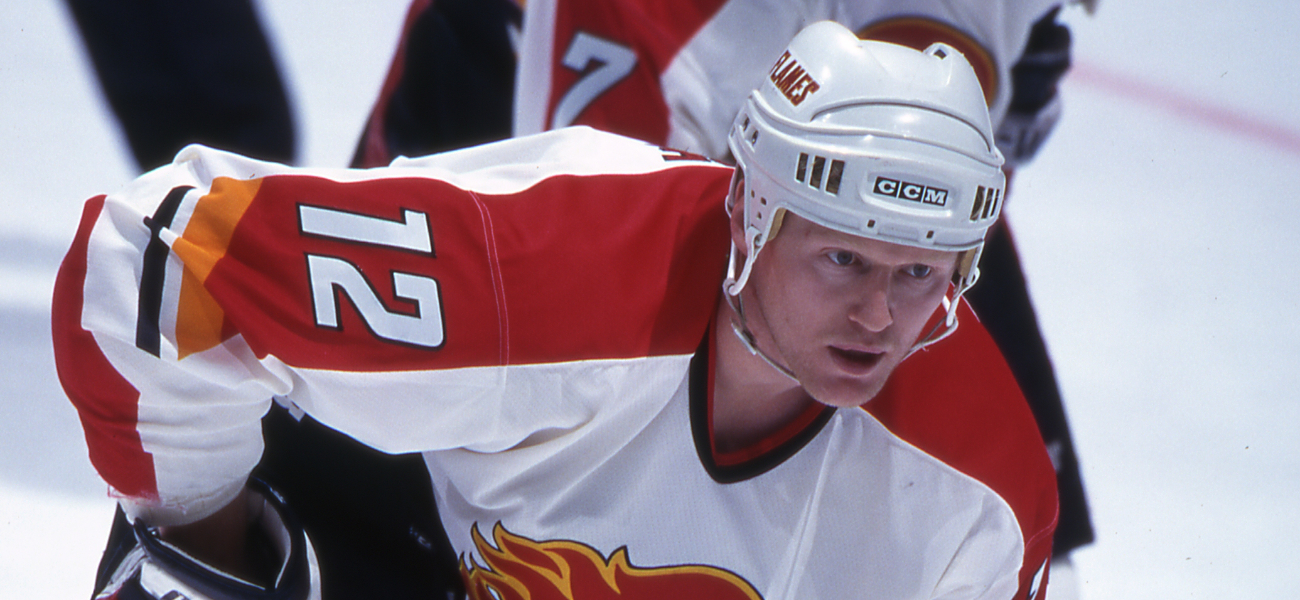Exiting the game can turn a person’s world upside-down.
“I also tell my friends that I lived my life backwards,” muses Paul Kruse.
“They’re all chiropractors, lawyers, accountants, what have you. They got out of school at 27, 28 and were just starting their careers.
“Right, pretty much, when I’m finishing mine.
“They’re all telling me now: ‘Buy a car!’ Or: ‘Buy a boat!’ and I’m like: ‘No, you buy it. You’re just reaching the prime years of your career.’
“Definitely weird.”
Now 50, he’s been retired for two decades following a three-winter European sojourn, with pitstops in Sheffield, England, Belfast, Northern Ireland and Linz, Austria.
Over half of Kruse’s 423 NHL regular-season appearances – 246 – as a hustling, bustling, in-your-grill winger came in service of the organization that drafted him in the fourth round of the 1990 draft, the Calgary Flames, from ’91 through ’96.
For the past four years, Kruse has worked for Fedmet Tubulars, a steel pipe company in the oil and gas industry located in downtown Calgary.
As a contractor, he operates under his own umbrella.
“They keep a large amount of pipe on the ground and I search for companies to purchase the pipe.”
Over 16 years,
“I was a fourth-line,
“For me and a lot of guys, hockey is something you love, something you do, make a bit of money at and then you’re starting over.
“Mentally, more than anything, is the big adjustment. You’ve got it in your mind: ‘I’m a hockey player.’ So what are you going to do?
“I remember the NHLPA put on some courses. I attended a life-after-hockey program after I’d finished playing in Austria. They gave me an office downtown. We had some networking groups, where we went and talked to people. Those are good tools.
“Plus, the money wasn’t as crazy as it is these days. A lot of guys needed to work. Maybe not so much anymore, the way salaries have increased.
“So, yeah, there were programs to help you transition. Money-management and things like that. And they’re getting better at it.”
The lure
“When I went to Austria I was pretty much retired. Then they called me just after Christmas to come back. A surprise, for sure. I’d been kinda soul searching for five or six months since the season had ended at Belfast.
“I was trying to come to grips with retirement and I didn’t know what direction I was gonna go so, given the chance, I jumped right back in. Didn’t think twice.
“I played the one season, then thought about going back for another. But that was the year of the NHL lockout so all those jobs were taken overseas.”
The finality of
Kruse’s wife Laurie-Anne – Canadian born, but living in Salt Lake when Kruse met her while playing for the Flames’ IHL affiliate – worked for a year, while Paul stayed home and endeavoured to get the loose ends worked out and embark on an altogether different career path.
“There can be a lot difficulties involved in the transition,” he acknowledges. “Some people know right away what direction they’re going to take. I didn’t.
“So I stayed home and did some painting. A lot of painting. I painted the house. The whole house. The same place we’ve had here in Calgary since, I believe, 1994. I rented it out to the Flames after I got traded.
“When I was finished playing, we had a house in Buffalo, thought about moving back to Salt Lake, a beautiful place, but I didn’t have a green card.
“So we decided to come back to Calgary, think things through and ended up staying.”
He dabbled in a few things, at one stage, toying with the idea of taking up the life-insurance trade; took a few courses.
Nope, wasn’t for him.
“I was bouncing around doing a few little things,” Kruse recalls. “Al Conroy was living here – he played in Philly – and he’d been down in Houston going to Mud School for oil and gas because he knew Troy Gamble, the goalie. (Gamble) got him into a company called M-I SWACO in Houston, then (Conroy) was transferred to Calgary.”
M-I SWACO had strong ties to Aboriginal communities. Al Conroy and former New York Islanders captain/Hall of Famer Bryan Trottier were heading north to help out with a program, talking to the kids, conducting a hockey clinic and so forth. Schlumberger oil services didn’t have anyone with a profile to represent them up north and Conroy suggested Kruse.
One thing led to another and four months later he’d been hired.
“Doing the program,” says Kruse, “was fun. It had something to do with hockey. Which was great. It was charitable. Which was great. I got to hang out and go for dinner with Bryan Trottier. Which was great.
“And as it turned out, that’s kinda how I started my career after hockey.”
Which leads to today.
“I meet with a lot of guys, ex-players, downtown for coffee, to discuss the oil and gas business, different possibilities,” Kruse says. “There’s a lot of sharing goes on.
“But getting out into the ‘real world’ is an eye opener, definitely. Many guys after they retire almost go into a depression stage, at least for awhile, until they can figure things out. I was okay. I was a fourth-line fringe guy so my career could’ve ended at any time. I always had to be on-my-toes kinda thing.
“But you’re living this high-octane lifestyle, a lot of intensity and lots going on at all times, and then …”
A self-deprecating laugh.
“And then you wind up painting the house.”
The whole house.

